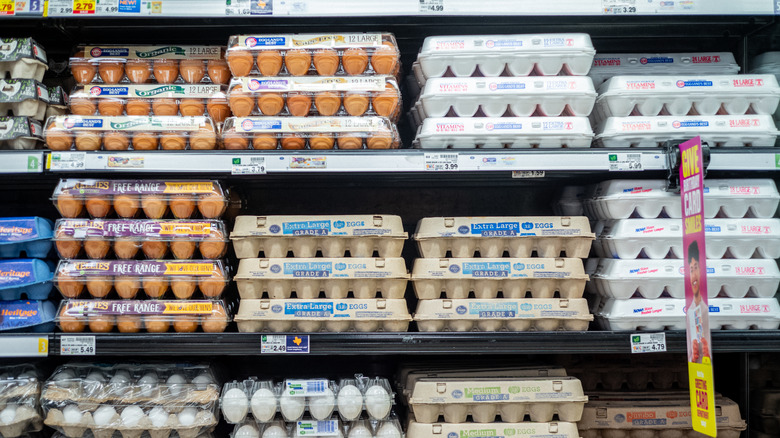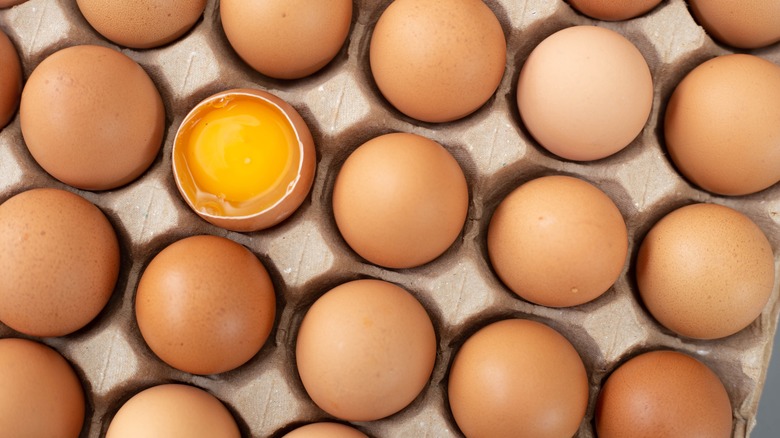Texas Is The Latest State To Encounter An Egg Shortage
Regardless of where you live, you've likely noticed that egg prices have gone through the roof. But prices had spiked even before the shortage. This past year, Americans saw record high inflation, as overall inflation hit 9.1% in June, a 40-year high (per Politico). Food was one of the hardest hit areas, surging beyond overall inflation. Food at home, i.e. groceries, was hit worst of all, with a 11.9% jump, while food in restaurants hovered around 8.5% higher year-over-year.
Groceries, and eggs, continue to get walloped. The latest Consumer Price Index report, released on December 13 and reflecting prices for November 2022, showed that the price of eggs was up a staggering 49.1% from a year earlier — and November's price was even down 0.2% from the previous month. For reference, the food at home category was up 12% overall in November, which, while still shockingly high, is nothing compared to the jump in egg prices.
Apparently, those of us facing sky-high prices should be glad that's all we're facing, as several states are facing outright egg shortages, including Texas.
What's behind Texas egg shortage
Shoppers in Texas are being met with empty shelves in the dairy aisle where eggs should be (per KFox14). According to New Mexico chicken farmer Natalie Viramontes, the shortage is due to factory farms in the Midwest — which are major egg suppliers — being hit with avian flu. When eggs are available, the prices are outrageous. One shopper, Jorge Zubiate, claimed that prices were 10 times what they once were. According to Houston area news source KPRC2, the national average price is $2.58 per dozen eggs, but in Houston, the average is about $4. And prices can go far beyond that. A dozen Grade A jumbo eggs at Food King in El Paso retailed for $7.46 on January 10.
While rising feed, labor, and energy costs that have been driving up egg prices all year, the nationwide outbreak of avian flu has exacerbated the issue. The outbreak has killed off some 60 million birds so far, and of those, nearly 43 million were egg-laying hens (per CNN). Demand for eggs also spikes in the winter, when people are more likely to be eating breakfast at home or baking.
Provided the avian flu epidemic subsides, prices may fall in three to six months, according to CNN. But that hasn't stopped people from rethinking what to have for breakfast in the meantime.

